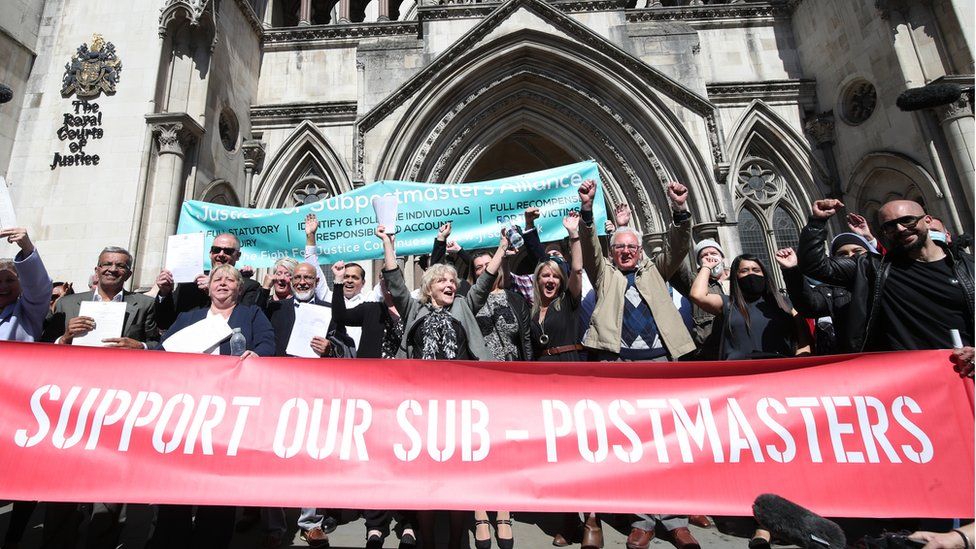The Post Office scandal, which has recently garnered attention through the ITV drama “Mr Bates vs the Post Office,” has brought to light the need for justice and compensation for those affected. In this article, we will explore some of the proposed remedies suggested by campaigners and experts to deliver justice to the victims of this scandal.
Quashing Convictions: Overturning the Injustices
One of the primary remedies proposed by the Horizon compensation advisory board is the collective overturning of all Post Office-driven convictions related to the Horizon IT system. This independent body, established to oversee compensation in relation to the scandal, believes that it is necessary to quash all convictions within the relevant period. Prof Chris Hodges, the board’s chair, has written to the lord chancellor, urging an act of parliament to achieve this outcome1.
While some individuals and lawyers express concerns about guilty people being exonerated and potential interference in the judicial system, Hodges argues that delivering justice to the majority justifies acquitting a few guilty individuals who have already been punished1. He suggests that the unique circumstances of the scandal may be accepted by the judiciary.
Compensation for All Affected: Ensuring Fair Restitution
Despite the establishment of three different compensation schemes since the scandal came to light, many affected individuals have not yet received compensation. The Post Office and the government have faced criticism for the delays and shortcomings in compensating the victims. Last November, the government promised £600,000 in compensation to every branch owner-operator whose wrongful conviction had been overturned1.

However, the actual payout has been lower than expected due to fewer successful appeals than anticipated. Hodges emphasizes the importance of compensating everyone entitled to it, but he also highlights the need for all convictions to be quashed, making the compensation process as straightforward as possible for the victims1.
Holding Those Responsible Accountable: Pursuing Justice
The lack of accountability in the Post Office scandal has become a growing concern. As damning evidence emerges from the public inquiry, there is frustration that no one has been held responsible for the injustices inflicted upon innocent individuals1.
In 2021, Lord Justice Holroyde overturned 39 convictions at the court of appeal and criticized the Post Office for its knowledge of the reliability issues surrounding the Horizon system. He highlighted failures in investigation and disclosure that were an “affront to the conscience of the court”1. The Metropolitan police have been investigating two former experts from Horizon supplier Fujitsu on suspicion of perjury and perverting the course of justice. Following the screening of “Mr Bates vs the Post Office,” the police confirmed that they are also investigating the Post Office itself1. Kevan Jones MP suggests that multiple charges could be laid against several individuals based on the evidence heard in public1.
Stripping Paula Vennells of her CBE: A Call for Accountability
Paula Vennells, the former Post Office chief executive, left her position in 2019 after seven years, having earned £5 million and received a CBE for her services to the Post Office and charity1. However, just ten months after her departure, the Post Office reached a settlement with 555 workers, admitting that it had made mistakes with the Fujitsu-developed IT system1.

A petition with over 1 million signatures calls for Vennells to lose her CBE, and the prime minister’s spokesperson has expressed support for the honours forfeiture committee to consider revoking her honor1.
Conclusion
The Post Office scandal has exposed the need for justice and accountability for victims who have suffered as a result of the Horizon IT system. The proposed remedies, such as quashing convictions, providing compensation to all affected, prosecuting those responsible, and stripping Paula Vennells of her CBE, aim to deliver the justice these individuals deserve. It is crucial to address the failures and shortcomings of the Post Office system to prevent similar injustices from occurring in the future.
The pursuit of justice for the victims of the Post Office scandal requires collective efforts from both the government and the judiciary. By implementing these remedies, we can begin to rebuild trust in the justice system and ensure that those affected receive the compensation they deserve.
Footnotes
